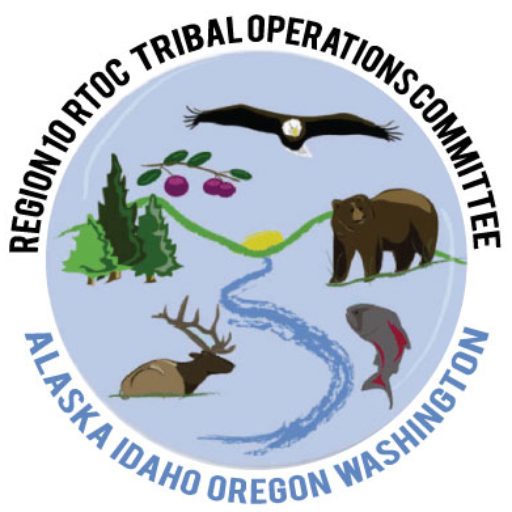Priorities
What We Do
Region 10 of the Environmental Protection Agency (EPA) includes a vast area with diverse tribal communities living in unique environmental conditions. In Alaska, Idaho, Oregon, and Washington there are 271 federally recognized tribal governments, each of which must address the human and environmental health of their communities. These Tribes share a similar history, unique relationship to the land, and legally significant relationship with the federal government. Each desire to protect, preserve, and enhance the natural resources of their homelands. However, Tribes in Region 10 can be fractionated by great distances, ideologies, and differing opinions. The population, cultures, languages, flora, fauna, unique land status, and acreage make the differences in the region even more challenging.
It is due to the wide-ranging and ever-developing environmental issues in Region 10 that the importance RTOC is realized. Despite the issue diversity, RTOC can identify the common issues that span the region and create a strong voice on behalf of the environment to EPA and other Tribal environmental organizations. While recognizing the unique environmental issues of the Tribes in Region 10, RTOC provides well-informed advice on behalf of the region. By design, RTOC does not attempt to speak on the behalf of Tribal governments and at all appropriate times will remind those in their company that they serve only serve in an advisory role and that EPA maintains a duty to consult with individual Tribes.
Nobody knows better about how to protect our way of life than those who are actively living within tribal communities. Since our region is spread out over 4 states, across oceans and thousands of miles, we utilize technology to help us become aware of the needs of those we serve. Each representative holds a virtual town hall meeting to get input from constituent tribes about the environmental matters closest to them. We encourage all tribal leaders and environmental staff to attend these community building meetings, where they can learn from others and be heard.
In addition to our town hall meetings, tribal leaders and environmental staff, or other concerned citizens can submit their concerns via the form below. Submissions from this form will be sent directly to the Executive Director and subsequently passed on to the corresponding Tribal representative. We will make every effort to address submissions in a timely manner and will reply with a proposed solution and/or will reach out to you to gather more information.
